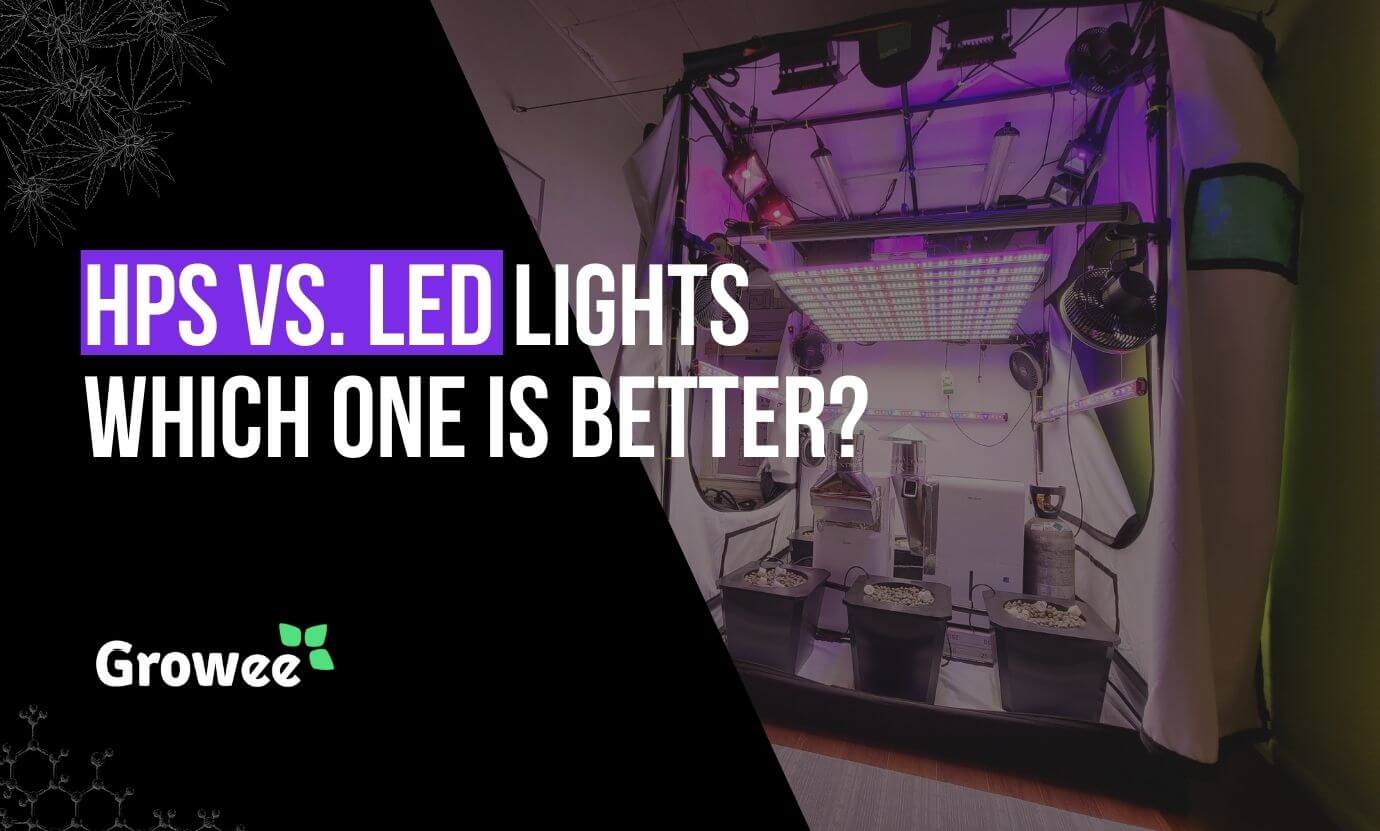If you want to grow herbs, fruits and Medical plants via hydroponics, one of the most important aspects is lighting. Most plants cannot survive without light. That is just the fact of the matter. However, this means that you need to choose the right kind of light for your hydroponic setup.
Two of the most popular and commonly used types of lights for hydroponic operations include LED or light emitting diode lights and HPS or high-pressure sodium lights.
Today, we’re going to compare the two on a side-by-side basis to see which one is best for your hydroponics setups. We’ll take a look at the pros and cons of both to see which one you would rather use to grow your herbs, fruits and Medical plants.
Why is Light Important in a Hydroponic System?
Light is required for a hydroponic system because plants need sunlight or some kind of light source to grow. Plants engage in what is known as photosynthesis, which essentially means that they take light energy and use it to convert nutrients into the food that they need to grow big and strong.
Both water and CO2, along with light, are needed to synthesize sugars that plants then need to grow. If you don’t give your hydroponic plants the proper lighting, it won’t be able to grow properly, and it won’t produce a good yield either.
What Is an HPS Grow Light?
HPS stands for high-pressure sodium, a type of light that is known for putting out a lot of light and lumens. They’re quite popular for indoor hydroponics systems.
HPS Grow Lights Pros
Let’s take a quick look at all of the advantages that you get with an HPS grow light.
- They’re cost-effective because they last for a very long time and don’t need to be replaced often, they lasts for years, and the light bulb can be easily replaced.
- HPS lights provide both illumination and heat, ideal for colder climates, reducing the need for separate heating, and optimizing indoor growing environments efficiently
- HPS grow lights generate a lot of light energy, which is ideal for flowering and for producing high yields.
HPS Grow Light Cons
Just like HPS lights have pros, so do they have cons that need to be looked at.
- This type of light loses its efficiency as time goes on.
- HPS grow lights get very hot, and this can lead to temperature spikes in the grow room.
- HPS lights convert a significant amount of energy into heat rather than light, leading to inefficiency. This can result in higher electricity bills, impacting the overall cost-effectiveness of hydroponic setups, especially in larger operations or areas with high energy prices
See How Growee Can Save You Time By Automating Your Plants Feeding
Water pH – Automated pH Up and Down Control
Nutrients Mixing – Automated Nutrient Dosing with Target EC / PPM Control.
Control From Anywhere – WiFi Connection and mobile App
HPS Grow Lights Are Best For Flowering and Big Yields
Because HPS grow lights put out so much light in the red spectrum, it means these lights are best used in hydroponic systems for herbs, fruits and Medical plants that are flowering, especially if you want really big yields.
The Market Shift from HPS to LED
In recent years, more hydroponic growers have switched from HPS to LED lights. This change is due to LEDs being cooler, more energy-efficient, and offering better light control. This switch helps manage costs and improves growing conditions in indoor setups like grow tents, making it a smart choice for modern farming
What Is an LED Grow Light?
An LED grow light is a mesh-like panel equipped with numerous small, efficient LED bulbs. These bulbs emit light in specific colors, essential for plant growth. This mesh provides a controlled light environment, simulating natural sunlight to support indoor plant growth, while allowing customization of light intensity and spectrum.
LED Grow Light Pros
Speaking of the benefits of LED grow lights, let’s see what these are right now.
- They’re compact and lightweight, which means that they’re easy to maneuver and you can put a whole lot of them in a small space.
- These lights are very efficient as far as energy use is concerned.
- LED grow lights are fantastic because they don’t create much heat, so they won’t really raise the temperature in your grow room.
- LED grow lights also allow you to customize the light spectrum, at least some of them do. This means that they can produce blue and/or red light, making them great for all stages of herbs, fruits and Medical plant growth.
LED Grow Light Cons
LED grow lights have a lot of positives, but negatives too, so let’s find out what these are.
- The more quality lights are expensive to purchase in the first place. It’s this high upfront cost that many people don’t like.
- One challenge with LED grow lights is the vast range of options, from cheap knock-offs to highly respected brands. This variety makes it difficult for buyers to choose a light that best fits their specific needs and ensures quality plant growth
- Another con of LED grow lights is their maintenance and repair issues. If a few LEDs in the panel malfunction, often the whole unit needs replacing, as repairing individual LEDs is not usually feasible. This means a higher cost and inconvenience, as replacing the entire panel is often the only solution.
LED Grow Lights Are Best for Overall Convenience and Energy Saving
LED grow lights stand out for their energy efficiency and user-friendliness. They’re power-saving, emit low heat, and allow precise control over the light spectrum, catering to specific plant needs. This versatility, combined with their long life and reduced electricity costs, makes them ideal for various indoor gardening setups.
Growers Adopting New Tech for Better Hydroponics
Home hydroponic enthusiasts, tent growers, and commercial cultivators are increasingly adopting new technologies to enhance yield and reduce costs. The market has witnessed a significant shift towards hydroponics and LED lighting, signaling a new era in cultivation. Just a few years ago, such advanced technologies were not accessible to small-scale indoor growers.
Smart Hydroponics: Remote Control and Data Connectivity with Growee
Growers are now embracing advanced technologies for hydroponic control, like Growee, to optimize hydroponics plant growth, streamline operations, and increase efficiency in their indoor gardening venture.
With Growee, growers easily control feeding and pH levels from afar through simple remote management. This practicality enhances efficiency and promotes successful hydroponic cultivation
If you need something to help make growing hydroponics easier, check out this awesome Growee Pro Combo ph and Nutrient Dosing System.
FAQ
Is LED or HPS better for grow rooms?
If being able to customize the light spectrum is important, than an LED light is best.
Should I switch from HPS to LED?
If your hydroponic system is currently in its vegetative stage, then you may want to use LED lights instead.
How much light is recommended for hydroponics?
Hydroponics should get up to 400 lumens per square meter when vegging and up to 1,000 lumens per square meter when flowering.
Are LED lights better for hydroponics?
Generally speaking, yes, LED lights are better, and this has to do with all of the advantages that we discussed above
What is the best light spectrum for hydroponics?
Blue light is ideal for vegetative growth and red light is best for flowering.
What is the most effective light for plant growth?
LED lights that put out a full light spectrum are generally best for effective plant growth.



